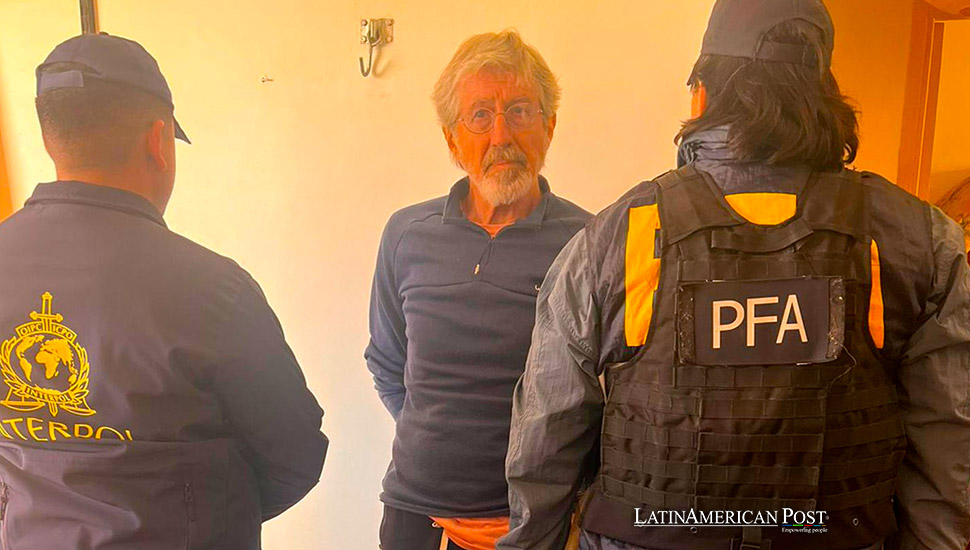Red Brigades Fugitive Finally Captured in Argentina Decades After Crimes

After 44 years on the run, Leonardo Bertulazzi, a former member of the notorious Red Brigades, has been arrested in Buenos Aires. His capture reveals a complex web of political asylum, international intrigue, and Argentina’s key role in sheltering fugitives.
For nearly five decades, Leonardo Bertulazzi lived as a ghost, evading justice for his role in one of Italy’s most notorious far-left militant groups, the Red Brigades. Now, at 72, his time on the run has ended. Bertulazzi’s arrest in Buenos Aires earlier this year has cast new light on the crimes of the Red Brigades and the enduring pursuit of justice for their victims. As the search comes to a close, the question remains: how did Bertulazzi manage to evade authorities for so long, and what role did Argentina play in shielding him from justice?
Bertulazzi’s case is not just the story of a single fugitive but also a reflection of the complex political landscape of the 1970s and 1980s, a time when terrorist groups like the Red Brigades wreaked havoc across Italy. It also underscores Argentina’s controversial history of providing refuge to criminals and political exiles. As Argentina moves to extradite Bertulazzi to Italy, the case has reopened old wounds and sparked a fresh debate over the country’s past involvement in harboring fugitives from justice.
A Terrorist Movement That Shook Italy
The Red Brigades, or Brigate Rosse in Italian, emerged as one of the most feared terrorist organizations in Europe during the 1970s and 1980s. Born out of the far-left student and worker movements of the late 1960s, the group sought to overthrow Italy’s democratic government and replace it with a Marxist-Leninist regime. They believed violence was the only way to achieve their goals, and they embarked on a bloody campaign of kidnappings, bombings, and assassinations that would forever scar Italy’s political landscape.
The period of violence, often referred to as the “Years of Lead” (Anni di Piombo), saw widespread political turmoil as both far-left and far-right groups engaged in violent acts to promote their ideologies. However, it was the Red Brigades that carried out some of the most notorious crimes, including the 1978 kidnapping and murder of Aldo Moro, Italy’s former prime minister.
Bertulazzi, a Red Brigades’ Genoa faction member, was deeply involved in these activities. In 1977, he participated in the kidnapping of Pietro Costa, a wealthy naval engineer. Costa was held captive for 81 days while his family scrambled to pay a ransom. The money raised from the kidnapping would later be used to finance the infamous operation that led to Aldo Moro’s death. Moro’s abduction marked a turning point in Italy’s battle with terrorism, as the Red Brigades held the nation hostage for 54 days before ultimately killing him. His body was found abandoned in the trunk of a car in Rome, a chilling symbol of the group’s brutality.
The Fugitive’s Escape to Argentina
Following the violent downfall of the Red Brigades, many of its members were arrested or killed, but some, like Leonardo Bertulazzi, managed to escape. Bertulazzi was sentenced in absentia in the 1970s to 27 years in prison for his role in the kidnapping of Pietro Costa. However, instead of facing justice, he fled Italy, eventually finding refuge in Argentina, a country that has long been a destination for political exiles and criminals seeking to avoid extradition.
Bertulazzi entered Argentina in the early 2000s, reportedly using a false passport after briefly passing through Chile. In 2002, Buenos Aires police arrested him, but his extradition was blocked, and within months he was released. Two years later, he was granted refugee status, a controversial decision that shielded him from extradition despite his involvement in violent crimes in Italy. This protection remained in place for nearly two decades, allowing Bertulazzi to live relatively openly in Argentina while his past as a Red Brigades member faded into obscurity.
How Bertulazzi was able to evade capture for so long raises serious questions about the international effort to track down fugitives associated with violent terrorist groups. His life in Argentina was largely undisturbed until political winds shifted in the country with the election of right-wing President Javier Milei. Upon taking office, Milei’s government revoked Bertulazzi’s refugee status, arguing that his crimes undermined democratic values and the lives of many innocent victims.
Argentina’s Role: A Safe Haven for Criminals?
Argentina has a long and complex history as a refuge for criminals, political exiles, and even former Nazis. Throughout the 20th century, the country’s shifting political landscape made it an attractive destination for those seeking to escape justice in Europe and beyond. During the rule of Juan Perón in the post-World War II era, Argentina became notorious for providing sanctuary to former Nazi officials fleeing prosecution in Europe. Later, during the Cold War, Argentina became a hub for leftist revolutionaries and political dissidents across Latin America and Europe.
For much of its modern history, Argentina’s asylum policies have been guided by political ideology, offering protection to those aligned with its prevailing leadership. In the case of Leonardo Bertulazzi, it was under a left-leaning administration that he was granted refugee status, enabling him to avoid extradition to Italy.
However, with the rise of President Milei, Argentina’s policies have shifted, particularly regarding individuals linked to violent movements like the Red Brigades. Milei’s administration has taken a hardline stance against granting asylum to individuals with criminal backgrounds, especially those who have been involved in activities that threaten democracy. Bertulazzi’s refugee status was revoked as part of this broader policy shift, a decision that has drawn praise from Italy and international observers who have long sought justice for the victims of the Red Brigades.
The revocation of Bertulazzi’s refugee status and his subsequent arrest also signal a growing willingness within Argentina to confront its past as a haven for criminals. While some view Bertulazzi as a relic of a bygone era, his capture is a powerful reminder of Argentina’s complicated role in global justice and its ongoing struggle to balance political asylum with accountability for serious crimes.
International Cooperation and the Pursuit of Justice
Bertulazzi’s arrest in Buenos Aires was not an isolated event. It resulted from years of collaboration between Italian authorities, Interpol, and the Argentine government. Italian Prime Minister Giorgia Meloni praised the cooperation between the two countries, noting that the arrest was made possible by “intense and fruitful collaboration” with international law enforcement agencies. The capture of Bertulazzi is seen as a significant victory for those seeking justice for the victims of the Red Brigades’ reign of terror.
However, the path to Bertulazzi’s extradition is far from straightforward. His legal team has already appealed to Argentina’s National Commission for Refugees (CONARE) to block his extradition to Italy. This appeal will likely trigger a lengthy legal process as Argentina’s courts weigh Bertulazzi’s fate. Meanwhile, the Italian government remains determined to see him serve his prison sentence for the crimes committed more than four decades ago.
The arrest of Bertulazzi has also reignited discussions about the extradition of other former members of the Red Brigades who have managed to evade justice. Italy has made repeated attempts to extradite former militants from countries like France, where some fugitives have found refuge, but these efforts have been mainly unsuccessful. Bertulazzi’s case may set a new precedent for how such individuals are treated by foreign governments, potentially paving the way for further arrests and extraditions.
Closing a Dark Chapter in Italy’s History
The arrest of Leonardo Bertulazzi marks the closing of a chapter in the long pursuit of justice for the victims of the Red Brigades. After 44 years on the run, Bertulazzi’s capture brings a sense of closure to the families of those who suffered during the violent “Years of Lead” in Italy. Yet his case also serves as a reminder of the enduring challenges in holding fugitives accountable for crimes committed decades ago.
Also read: Spy Children’s Argentine Upbringing and the Surprise Return to Russia
As Bertulazzi’s legal battle unfolds, it will be up to Argentina’s courts to decide whether he will finally face justice in Italy. For many, his arrest is a step toward reconciliation, a moment that underscores the importance of international cooperation in the fight against terrorism and political violence. While the legacy of the Red Brigades remains a painful memory for Italy, the pursuit of justice for their victims continues—one arrest at a time.





